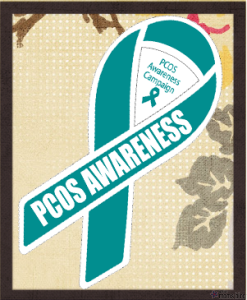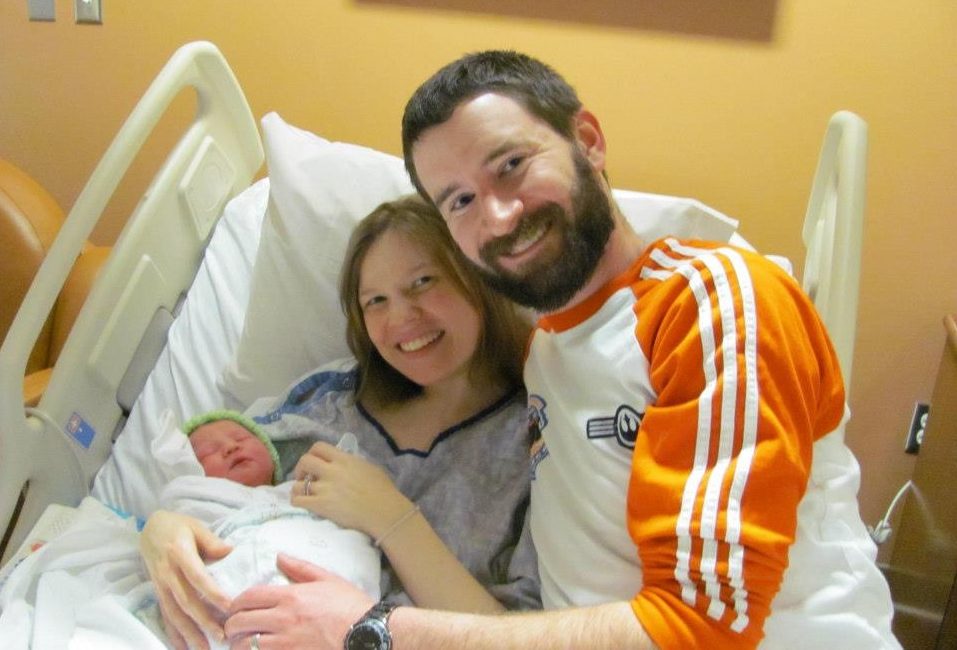In addition to September being Ovarian Cancer Awareness Month and Childhood Cancer Awareness Month, it’s also Polycystic Ovarian Syndrome (PCOS) Awareness Month, a cause near and dear to my heart. This disease has profoundly affected my life.
Six years ago I stopped taking birth control pills and immediately missed my period. I thought for sure I had gotten pregnant on my first try! But not only was I not pregnant, my period didn’t come back. I knew something wasn’t right. Four months later, I was diagnosed with PCOS, the number one cause of female infertility, and I was devastated to learn that my path to motherhood would not be smooth.
When I received my diagnosis, I felt completely and utterly alone. I was sure I was the only woman in the world who had this disease. But since I have shared my experiences with infertility, I have learned I am not at all alone; many friends have reached out to me and shared that they, too, have this disorder. In fact, in preparing for this post, I learned that another BMB contributor, Cora, also has PCOS and had an even more complicated journey toward motherhood. Being diagnosed with PCOS can be incredibly sad and frustrating, but there is definitely hope and comfort to be found.
So to raise awareness, here are some basic PCOS facts:
What is PCOS?
Polycystic ovarian syndrome is an endocrine disorder that causes the ovaries to be encircled by small cysts, almost like a string of pearls. These cysts prevent eggs from fully growing, which in turn prevents ovulation. The cause of PCOS is unknown, but one common trait among women with PCOS is a hormonal imbalance. Women with PCOS tend to have higher levels of male hormones, which in turn affects their ability to ovulate and causes infertility. These women are also often insulin resistant, which increases their risk for being diagnosed with type 2 diabetes.
What are the symptoms?
The symptoms of PCOS can vary from woman to woman, but these are the most common:
- Irregular or missed periods
- Infertility
- Acne
- Excessive hair growth
- Weight gain
- Depression or anxiety
Who is affected by PCOS?
PCOS often goes undiagnosed, so the number of women affected is likely inaccurate. I was diagnosed in my mid-20s, but I could have been diagnosed when I first started showing symptoms at 13. One in every 10-20 women has PCOS.
How can it be treated?
Unfortunately, there is no cure for PCOS, but there are many ways to help ease it. In some cases, the symptoms of PCOS can be managed or reduced with a change in diet and more exercise. If you’re not trying to get pregnant, birth control pills are the best treatment to stop the growth of cysts and regulate your menstrual cycle. If you are trying to get pregnant, you can visit a reproductive endocrinologist, who will have a specific treatment plan for you. I took Clomid to jumpstart ovulation, and, eventually, my son was conceived via intrauterine insemination (IUI). It took me a little while to come to terms with the fact that my child would not be conceived “naturally,” but in the end, what matters is that he is here now. I thank God every day for the science and the doctors who helped bring him into this world and the fact that PCOS can be overcome.
Additional resources:
For more information and support, check out these two websites:
If you’ve been recently diagnosed with PCOS or have been living with it for awhile, please know you’re not alone. There are so many of us who are living with PCOS. And if you’re trying to have a baby and are experiencing infertility due to PCOS, trust me, there is hope! I am living proof of that. Your road to motherhood may take a little longer, but you can get there.















